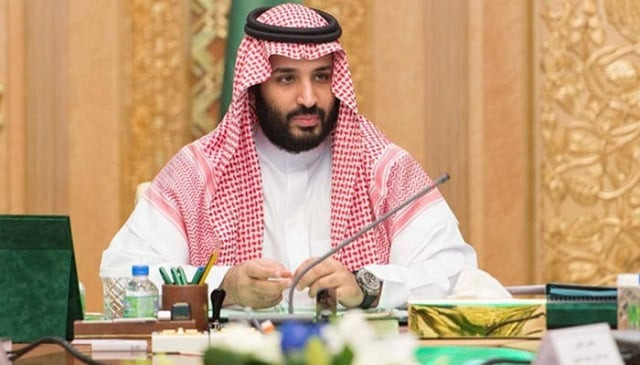Saudi crown prince pledges ‘a country of moderate Islam’
Statement is the most direct attack by a top official on country's influential religious establishment

Saudi Arabia's Crown Prince Mohammed bin Salman. PHOTO: AFP
The Saudi strongman, 32, did not mince words in declaring a new reality for the kingdom, hours after announcing the launch of an independent $500 billion megacity -- with "separate regulation" -- along the Red Sea coastline.
"We want to live a normal life. A life in which our religion translates to tolerance, to our traditions of kindness," he told international investors gathered at an economic forum in Riyadh.
"Seventy per cent of the Saudi population is under 30, and honestly we will not spend the next 30 years of our lives dealing with destructive ideas. We will destroy them today and at once," the crown prince said. "We will end extremism very soon."
Saudi Arabia seeks Islamic tourism boost in test for heritage, tradition
Prince Mohammed, known by his initials MBS, said he would see to it his country moved past 1979, a reference to the rise of political Islam in the years following the assassination of King Faisal in 1975.
The early 1970s had ushered major change into the oil-rich kingdom, including the introduction of television and schools for girls.
But that came to a halt as the Al-Sheikh family, which controls religious and social regulation in the kingdom, and the ruling Al-Saud family slowly reinforced the conservative policies Riyadh is known for.
Prince Mohammed's statement Tuesday is the most direct attack by a Saudi official on the Gulf country's influential conservative religious circles, whose stranglehold on Saudi society now appears to face serious challenges.
"We are returning to what we were before -- a country of moderate Islam that is open to all religions, traditions and people around the globe," he said.
While the Saudi government continues to draw criticism from international rights groups, the crown prince has pushed ahead with reforms since his sudden appointment on June 21.
Monitors, including Amnesty International, say Saudi Arabia has in parallel stepped up its repression of peaceful rights activists.
Saudi authorities last month arrested more than 20 activists, including two popular Muslim preachers, without disclosing any charges against them.
Saudi cabinet approves economic diversification plan
But the young prince is widely regarded as being the force behind King Salman's decision last month to lift a decades-long ban prohibiting women from driving.
He has vied to modernise certain sectors in the kingdom, hinting that long-banned cinemas would soon be permitted as part of ambitious reforms for a post-oil era that could shake up the austere kingdom's cultural scene.
Prince Mohammed's comments came hours after the opening of the Future Investment Initiative, a three-day economic conference that brings together some 2,500 dignitaries, including 2,000 foreign investors.
Earlier Tuesday, Saudi Arabia's Public Investment Fund -- controlled by MBS -- announced the launch of an independent economic zone along the kingdom's northwestern coastline.
The project, dubbed NEOM, will operate under regulations separate from those that govern the rest of Saudi Arabia.
NEOM covers an uninterrupted coastline of nearly 470 kilometres (290 miles) in northwestern Saudi Arabia and will extend into territories in neighbouring Jordan and Egypt, a statement released by the kingdom's Public Investment Fund said.
Authorities in Jordan and Egypt did not immediately comment on the statement.












1724319076-0/Untitled-design-(5)1724319076-0-208x130.webp)






COMMENTS
Comments are moderated and generally will be posted if they are on-topic and not abusive.
For more information, please see our Comments FAQ